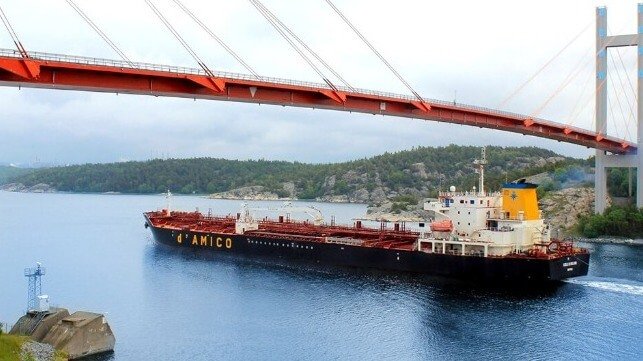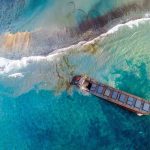Italian shipping company d’Amico Group reports that it has certified its entire fleet of LR1 product tankers to permanently operate on a biofuel blend after completing a comprehensive joint industry test of the B30 blend from Trafigura. The company now intends to certify its entire fleet to operate on the biofuel blend while also conducting follow on tests on other versions of the biofuel blend.
The success of the test highlights the emerging near-term alternatives available to the shipping industry in developing decarbonization strategies. While much of the attention focuses on the longer-term development of alternative fuels, this project involved a broad range of industry leaders, including d’Amico Group, ABS, LR FOBAS, MAN Energy Solutions, RINA, the Liberian Registry, and Trafigura, sought to confirm that near-term advantages of biofuels. The trial followed the appropriate EU fuel regulations and guidelines on calculating CO2 emissions using well-to-wake analysis.
According to the group, while there are currently a lot of constraints ranging from availability to the required scale up as well as technology and regulations for future green fuels, the testing confirmed the ability to take immediate action to address reducing the CO2 footprint by using the so-called “drop-in” solution.
“Biofuel is one of the decarbonization strategies we are exploring in d’Amico for the existing tonnage,” says Salvatore d’Amico, Fleet Director at d’Amico Group. “While we are closely monitoring the development of alternative fuels of the future, new technology for the propulsion and continue to invest in innovative digital solutions, we do believe that using the biofuel blend can speed up the decarbonization of the maritime transportation with an immediate effect on the existing tonnage.”
The trials were conducted between June 19 and July 6 on board the d’Amico Group’s LR1 product tanker Cielo di Rotterdam, a four-year-old vessel registered in Liberia. The 74,999 dwt tanker was supplied with the B30 biofuel blend by Trafigura. Analysis of the results showed positive results in the reduction of CO2 emission, reduced carbon intensity, and stable NOx emissions. According to the partners, the vessel achieved a 4.3 percent reduction in CO2 emissions per ton of fuel with a further 3.5 percent improvement using very low sulfur fuels.
Following the results, d’Amico reports that it was able to certify through the flag administration the permanent operation of the product tankers on the biofuel blend. In addition, working with the class and flag state they were able to confirm that the use of the biofuel blend B30 does not affect the Tier II certification on the engines for NOx compliance. Tests were performed on both the main engine and the diesel generations to determine compliance.
“This trailblazing project will make a vital contribution to our understanding of the potential of biofuels in shipping, its implications for equipment, and their impact on decarbonization efforts,” said Georgios Plevrakis, ABS Director, Global Sustainability. “Carbon-neutral biofuels could offer significant benefits to the marine sector’s drive to decarbonize operations.”
D’Amico concluded that the trials showed that depending on the scale-up of feedstock production worldwide, adding the biofuel blend as a drop-in to traditional maritime fuels is a viable measure to reduce emissions. Further, they noted that the result showed that the biofuel blend B30 is a viable solution to comply with EU Fuel regulations scheduled to be introduced on January 1, 2025, on the use of renewable and low-carbon fuels in maritime transport.
Source: The Maritime Executive






